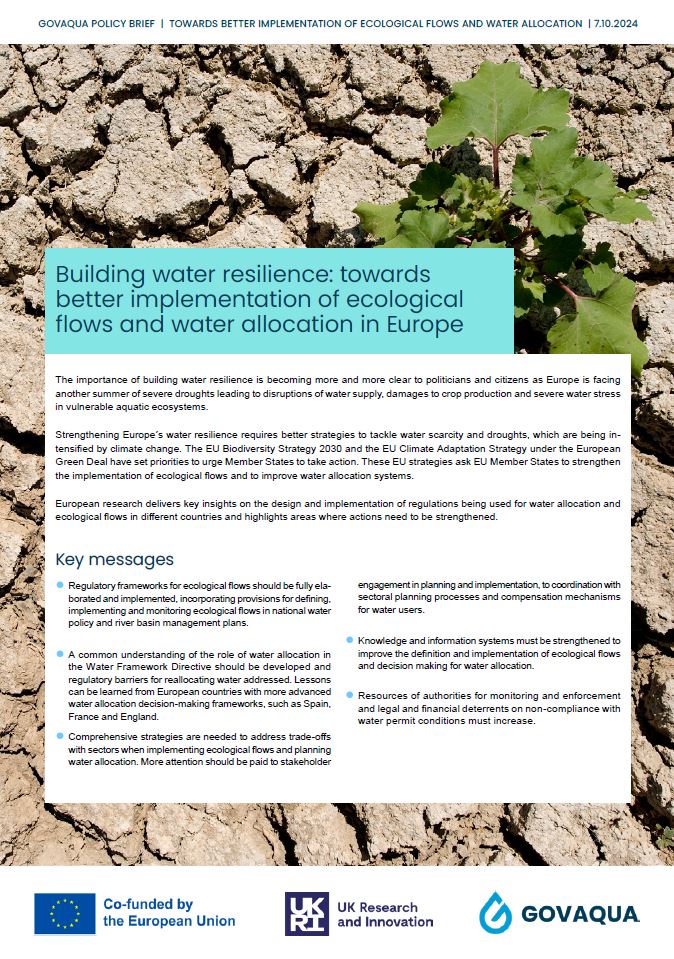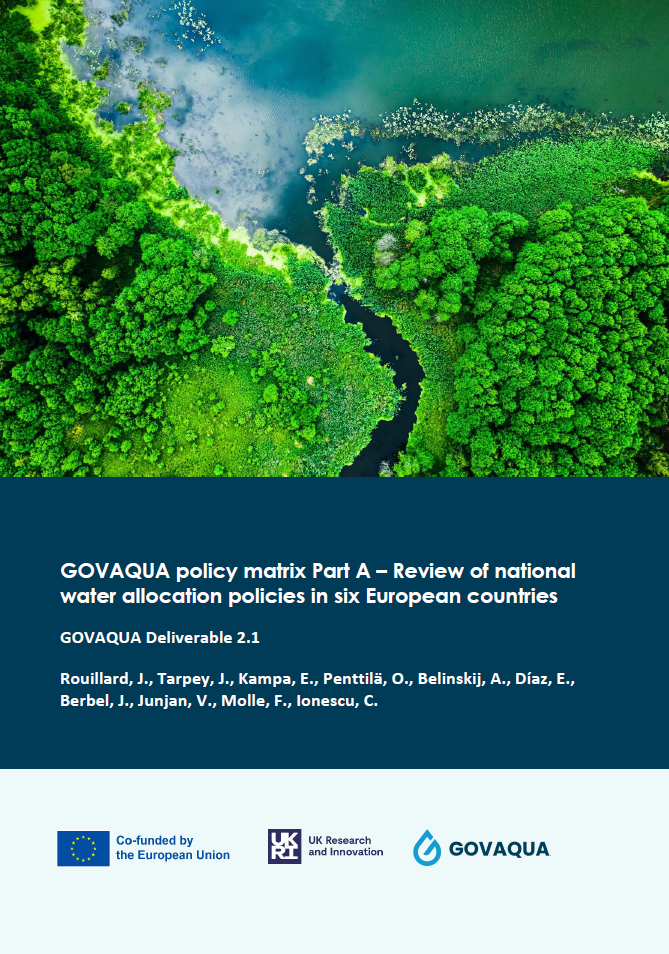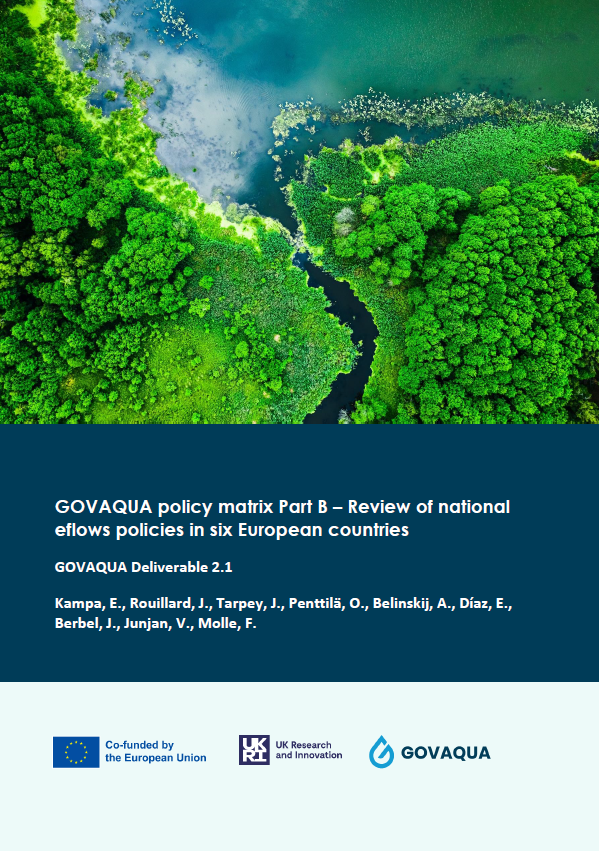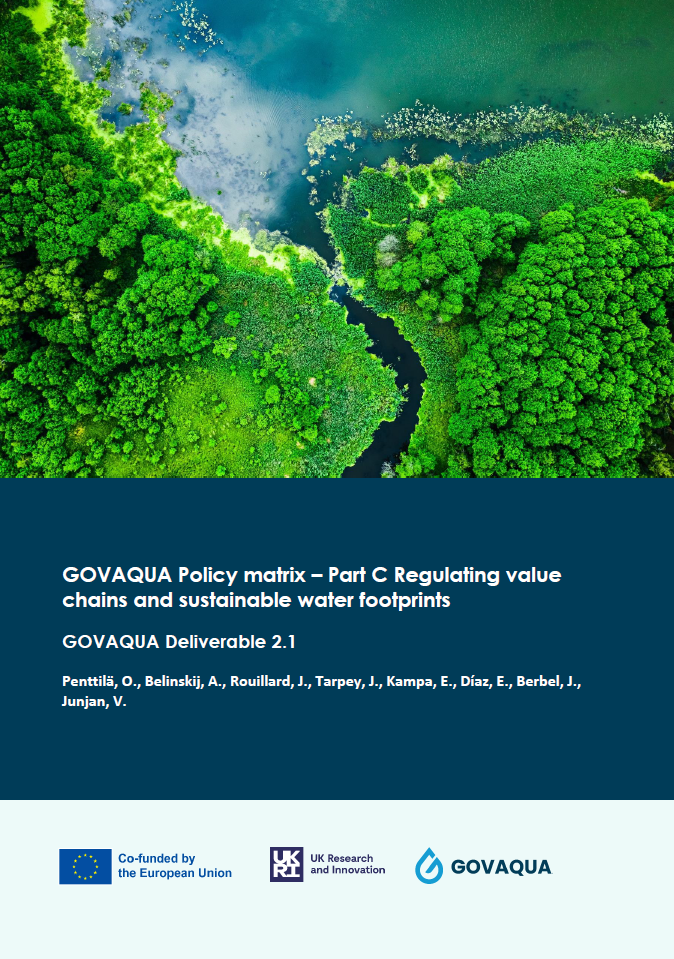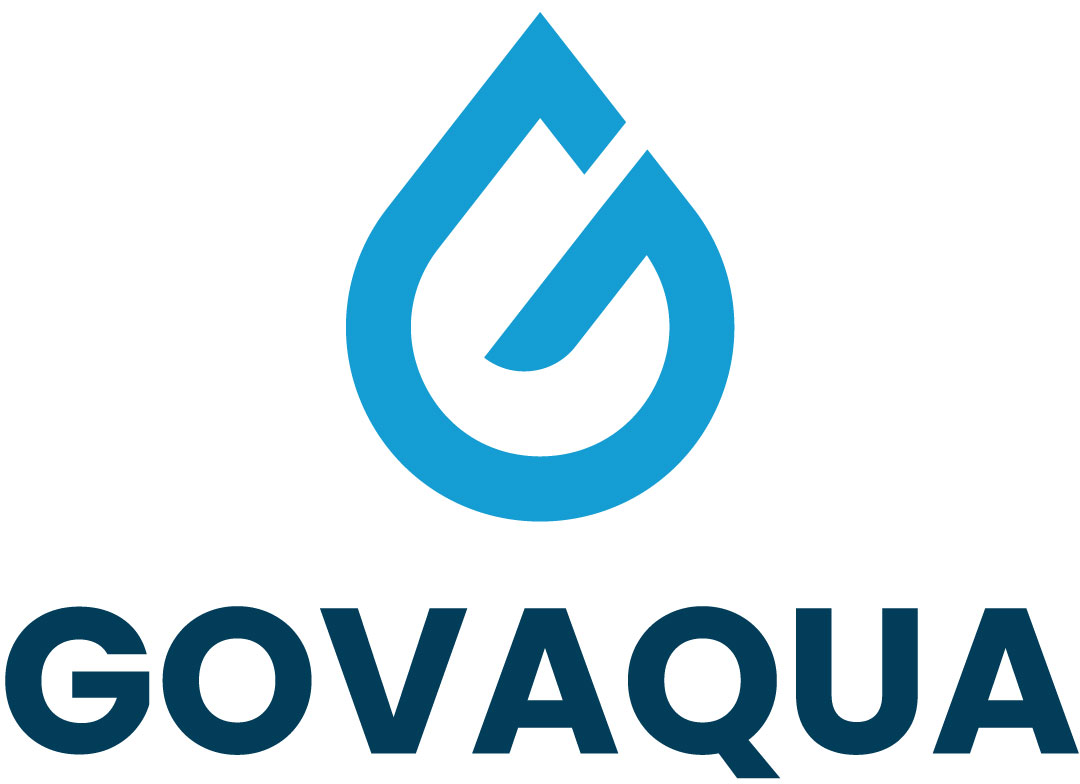Building Water Resilience
Towards better implementation of ecological flows and water allocation in Europe
- Publication
- Citation
Rouillard, Josselin et al. 2024: Building water resilience: Towards better implementation of ecological flows and water allocation in Europe. GOVAQUA Policy Brief. Finnish Environment Institute: Helsinki.
As Europe faces increasing droughts and water scarcity, the need to strengthen water resilience is becoming more urgent. Recent summers have highlighted how climate-induced water shortages threaten water supplies, reduce agricultural yields, and place vulnerable ecosystems under stress. To address these challenges, the EU’s Biodiversity Strategy 2030 and Climate Adaptation Strategy call for enhanced implementation of ecological flows (eflows) and improved water allocation systems.
Ecological Flows as a Key to Sustainable Water Management
A critical approach to strengthening water resilience is improving the implementation of ecological flows, which ensure sufficient water for ecosystems. However, many EU countries lack clear legal frameworks and mechanisms to integrate eflows into national water management. National water laws and River Basin Management Plans (RBMPs) often do not sufficiently address the need to adapt water use to ecological conditions. Research highlights the urgent need for clearer legal foundations and standardized approaches to implementing eflows across Europe.
Challenges in Water Allocation and Climate Adaptation
In addition to eflows, equitable and sustainable water allocation is another crucial element in addressing water scarcity. Research indicates that many countries lack a shared understanding of the role of water allocation under the EU Water Framework Directive (WFD). Barriers that prevent water reallocation must be identified and addressed to ensure efficient water management, especially in regions already facing water shortages.
Key Scientific Messages
- In several EU countries, the legal and policy frameworks for defining and implementing ecological flows (eflows) are still underdeveloped, with insufficient eflows provisions in national water laws and RBMPs, and a lack of regulatory mechanisms to revise water use permits based on environmental conditions.
- A common understanding of the role of water allocation within the Water Framework Directive (WFD) should be established, and barriers to reallocating water must be addressed.
- Greater stakeholder engagement, including towards non consumptive uses such as environment, fisheries and navigation, is needed throughout the regulatory process, including during permitting, planning, and enforcing eflows and water allocations.
- Knowledge and information systems need to be strengthened, particularly regarding the link between eflows and ecological response, surface water–groundwater interaction, and the increasing impacts of climate change.
- A much stronger focus is needed on enforcement and deterrence of non-compliance with water regulations.
Project Information
This policy brief conducted as part of the European Green Deal, highlights the key regulatory and scientific challenges related to water resilience. It offers critical recommendations for making water use in Europe more sustainable and emphasizes the need for urgent action to combat water scarcity and climate change impacts.
